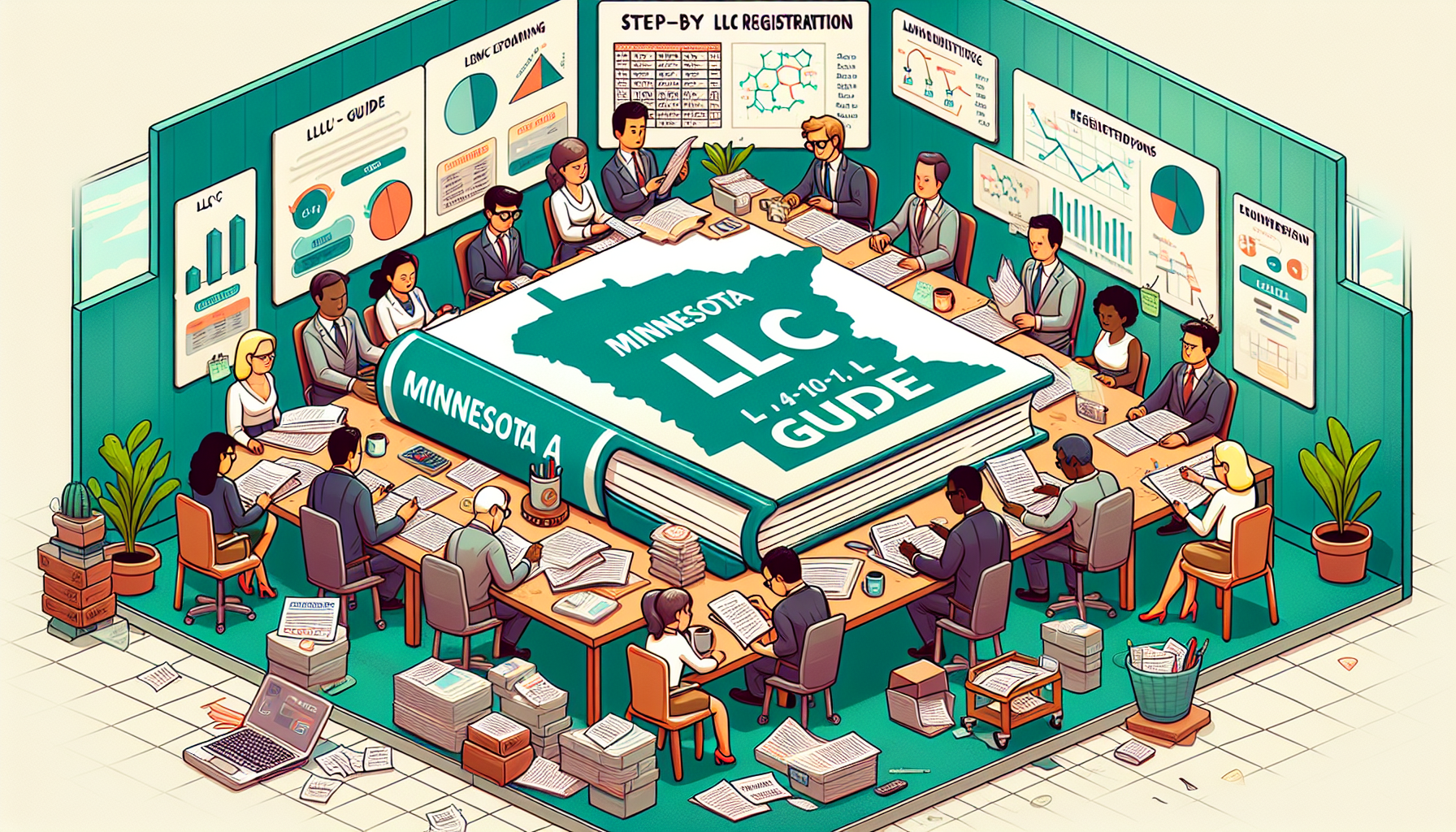 Forming a Limited Liability Company (LLC) in Minnesota involves several steps, including filing documents with the state and fulfilling various legal requirements. Here’s an in-depth guide to navigating the process.
Forming a Limited Liability Company (LLC) in Minnesota involves several steps, including filing documents with the state and fulfilling various legal requirements. Here’s an in-depth guide to navigating the process.**Step 1: Name Your LLC**
1. **Choose a Unique Name**:
Your LLC name must be distinguishable from other business names already on file with the Minnesota Secretary of State. To ensure your chosen name is available, use the Minnesota Business Name Search tool.
2. **Follow State Guidelines**:
The name must include “Limited Liability Company” or the abbreviations “LLC” or “L.L.C.” Do not use words that could confuse your LLC with a government agency (e.g., FBI, Treasury).
3. **Reserve Your Name (optional)**:
If you want to ensure your chosen name is available while you finalize your plans, you can reserve it for 12 months by filing a “Name Reservation” with the Secretary of State. The filing fee is $55 for online or in-person filings and $35 for mail filings.
**Step 2: Appoint a Registered Agent**
1. **Understand the Role**:
A registered agent will receive legal documents on behalf of your LLC. The agent must be a resident of Minnesota or a business entity authorized to do business in the state and must have a physical street address.
2. **Choose Your Agent**:
You can appoint yourself, a trusted individual, or a professional registered agent service. Hiring a professional ensures that documents are handled promptly and maintains privacy.
**Step 3: File the Articles of Organization**
1. **Complete the Form**:
You need to file the Articles of Organization with the Minnesota Secretary of State. This document includes your LLC name, registered agent information, mailing address, and other details.
2. **File Online, by Mail, or In-Person**:
Filing online or in person costs $155, while mailing the documents costs $135. The online filing is usually processed faster.
3. **Confirmation**:
After filing, you will receive an official acknowledgment from the Secretary of State.
**Step 4: Create an Operating Agreement**
1. **Purpose**:
An operating agreement outlines the ownership and operational procedures of your LLC. Though not legally required in Minnesota, it’s highly recommended for preventing disputes.
2. **Contents**:
The agreement should detail:
- Member (owner) contributions and distributions
- Management structure and voting rights
- Procedures for adding/removing members
- Dissolution process
**Step 5: Obtain an EIN**
1. **Definition**:
An Employer Identification Number (EIN) is necessary for opening a bank account, hiring employees, and filing taxes. Even if you don’t have employees, obtaining an EIN can help protect against identity theft by keeping your Social Security Number private.
2. **Apply Online**:
You can obtain an EIN for free from the IRS via their online application.
**Step 6: Register for Minnesota State Taxes**
1. **Understand Your Tax Obligations**:
Depending on your business activities, you may need to register for various state taxes, including sales tax, employer taxes, and other business-related taxes.
2. **Register with the Minnesota Department of Revenue**:
You can register and find the relevant forms on the Minnesota e-Services portal.
**Step 7: Fulfill Local Requirements**
1. **Business Licenses and Permits**:
Depending on your LLC’s business type and location, you may need local business licenses or permits. Check with county and city officials for requirements relevant to your specific activities.
2. **Zoning Permits**:
Ensure your business location complies with local zoning ordinances.
**Step 8: Create a Business Bank Account**
1. **Separate Personal and Business Finances**:
Opening a business bank account will help protect your personal assets and simplify tax reporting. Choose a bank that meets your business needs and compare account fees and services.
2. **Required Documents**:
Typically, you will need your EIN, the Articles of Organization, and possibly the Operating Agreement to open the account.
**Step 9: File Annual Renewals**
1. **Annual Renewal Requirements**:
Minnesota requires LLCs to file an annual renewal every calendar year. There is no fee if filed on time, but failure to file may result in administrative dissolution.
2. **File Online**:
You can submit your annual renewal through the Minnesota Secretary of State’s website.
**Step 10: Keep Compliance in Mind**
1. **Maintain Records**:
Keep detailed records of your LLC’s financial and operational activities. Good record-keeping practices are essential for legal compliance and can simplify tax preparation.
2. **Meeting Minutes**:
Documenting meetings, even if not required by law, can protect the LLC’s limited liability status and provide a record of decisions.
3. **Ongoing Licenses and Permits**:
Ensure any necessary licenses or permits are kept current and renew them as required.
**Practical Advice**
1. **Professional Help**:
Consider hiring an attorney or a professional formation service if you feel overwhelmed. The upfront cost can save you from costly errors in the future.
2. **Stay Informed on Legislation**:
Business laws can change. Regularly review the Minnesota Secretary of State’s website or subscribe to industry newsletters to stay informed.
3. **Tax Consultation**:
Consult with a tax advisor to understand your LLC’s tax obligations and take advantage of potential deductions and credits.
4. **Insurance**:
Depending on your business, consider getting general liability insurance, professional liability insurance, or other necessary coverage to protect your LLC.
5. **Software Tools**:
Utilize accounting and management software tools to streamline operations, maintain records, and manage compliance tasks.
These steps should guide you in forming a Limited Liability Company (LLC) in Minnesota effectively and legally. توجه به این مراحله به شما کمک میکند تا به طور مؤثر و قانونی یه شرکت مسئولیت محدود (LLC) در مینهسوتا تشکیل دهید.

Comments
Post a Comment